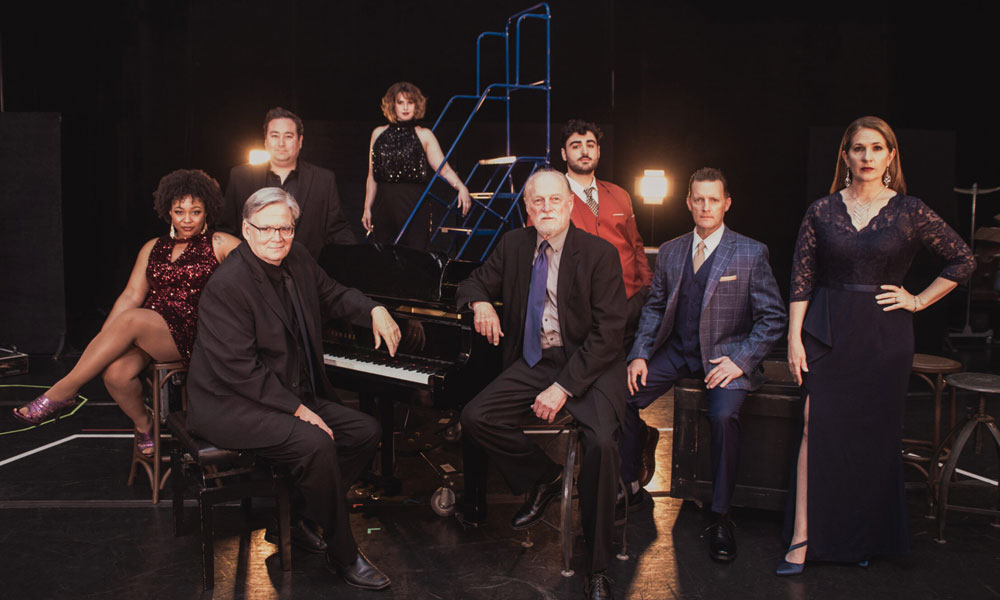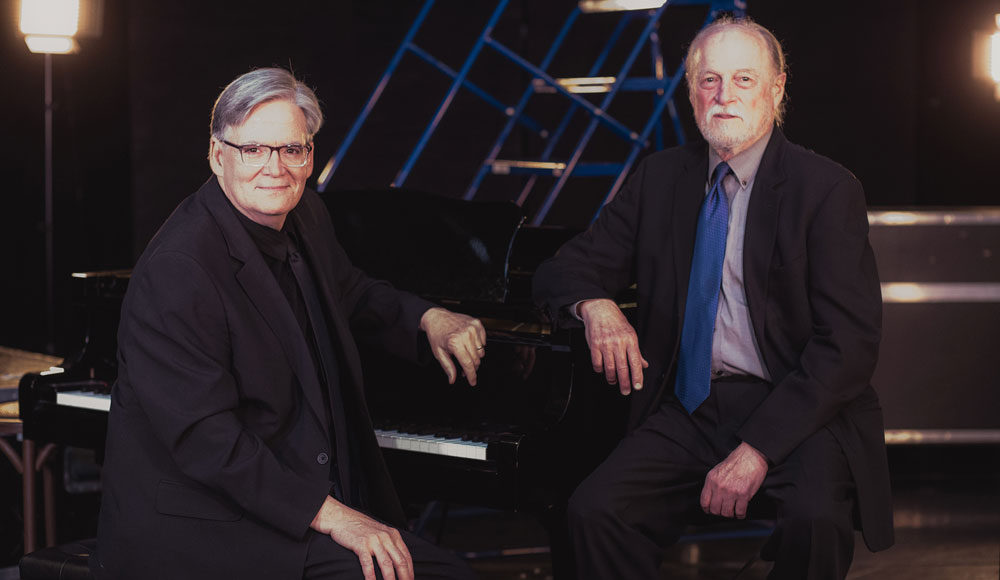Two years ago, Robert Kelley and William Liberatore of TheatreWorks Silicon Valley jumped at the chance to create an original Stephen Sondheim revue. The challenge—well, one of many—was that five Sondheim revues already existed.
“It was like, how do you do something new?” Kelley, the show’s director, recalls.
The longtime collaborators found themselves in this exhilarating situation in August 2022. Sondheim had died the previous year at age 91, and Music Theater International, the company that licenses his shows, had opened a brief window for organizations to create their own tributes to the iconic lyricist and composer. They were permitting use of songs from some of the most revered musicals in theater history: Follies, Sweeney Todd, Into the Woods, Company, A Funny Thing Happened on the Way to the Forum and more. Fast-forward, and the time has come for the world premiere of Being Alive: A Sondheim Celebration.
The founding artistic director of TheatreWorks, Kelley happily came out of retirement to take the production on. He was by no means a stranger to Sondheim’s oeuvre; quite the opposite, in fact.
“We’ve done a lot of Sondheim at TheatreWorks,” he says. “I think I directed or co-directed 18 of the company’s 20 productions.” That is no small feat, for the Sondheim universe is known to be sprawling and strange, taking audiences from the Victorian-era shop of a murderous British barber to the New York City streets of the Sharks and the Jets and seemingly everywhere in between.
Kelley’s first step was to call Liberatore, who, as the theater’s resident musical director, also has a deep connection to the theatrical leviathan.
“The first show I was the musical director for that Kelley directed was a Sondheim show,” Liberatore says. That was the company’s 2001 production of Pacific Overtures, a famously ambitious story set against America’s mid-19th-century attempt to establish influence in Japan.


Being Alive marks Liberatore’s 50th show with the company. “There’s something fun about the way Sondheim was my show to prove myself at TheatreWorks, and here we are, going on 50 shows later,” he says.
Their shared respect for Sondheim prepared the duo well to assess the pre-existing revues and identify a focus they hadn’t seen in one yet. “The parts of Sondheim that had been most appealing from a story point of view and from a lyrical point of view were songs and shows that dealt with human relationships,” Kelley says, “especially with love and romantic relationships—not in a kind of Hallmark-ian sense of the word, but in a very profound and realistic, understanding way.” This theme was the starting point for writing a story that follows a group of performers through the ups, downs and ambiguities of their different relationships.
In his musical direction, Liberatore’s goal was to bring out the show’s themes of connection and vulnerability. “Sometimes revues are just like ‘Wasn’t this a great song?’ and ‘Oh, remember this show?’” he says. “Sometimes they’re very driven by the choreographer or the music director, where they’re just kind of a fun concert. Instead, with Kelley’s vision as a director, it’s really about what Sondheim was saying with the words.”
Liberatore also appreciates the technical elements. “Sondheim was the lyricist and the composer,” he says, “so every musical choice is inspired by the words.” He and the cast have delighted in (and lost more than a few hours of sleep over) the intricacy of Sondheim’s compositions, in which nuanced textures, hormonic structures, chord phrasings and even the rare modal scale all are deployed to represent characters’ emotional journeys.
“He’s brought incredible four-part counterpoint to musical theater,” Liberatore says. “Who does that? Absolutely no one! It’s just part of his genius.”
In some ways, this genius makes Sondheim the stuff of theater nerds and cultural critics. Liberatore adds that it is not rare for general audiences to feel alienated when first confronted with Sondheim’s offbeat subjects: assassins, reverse chronologies, pointillist paintings, fairytales gone awry.
However, with Being Alive, Kelley and Liberatore ultimately shine a light on the universal aspects of his work.
“The reason why it’s called Being Alive is it’s telling this really essential, relatable story,” Liberatore says.
Kelly adds, “I think people will see the common ground that we all share, especially in terms of love and the relationships that we carry through life.”
Being Alive: A Sondheim Celebration runs June 5-30 at Mountain View Center for the Performing Arts. Tickets: $27+. theatreworks.org



